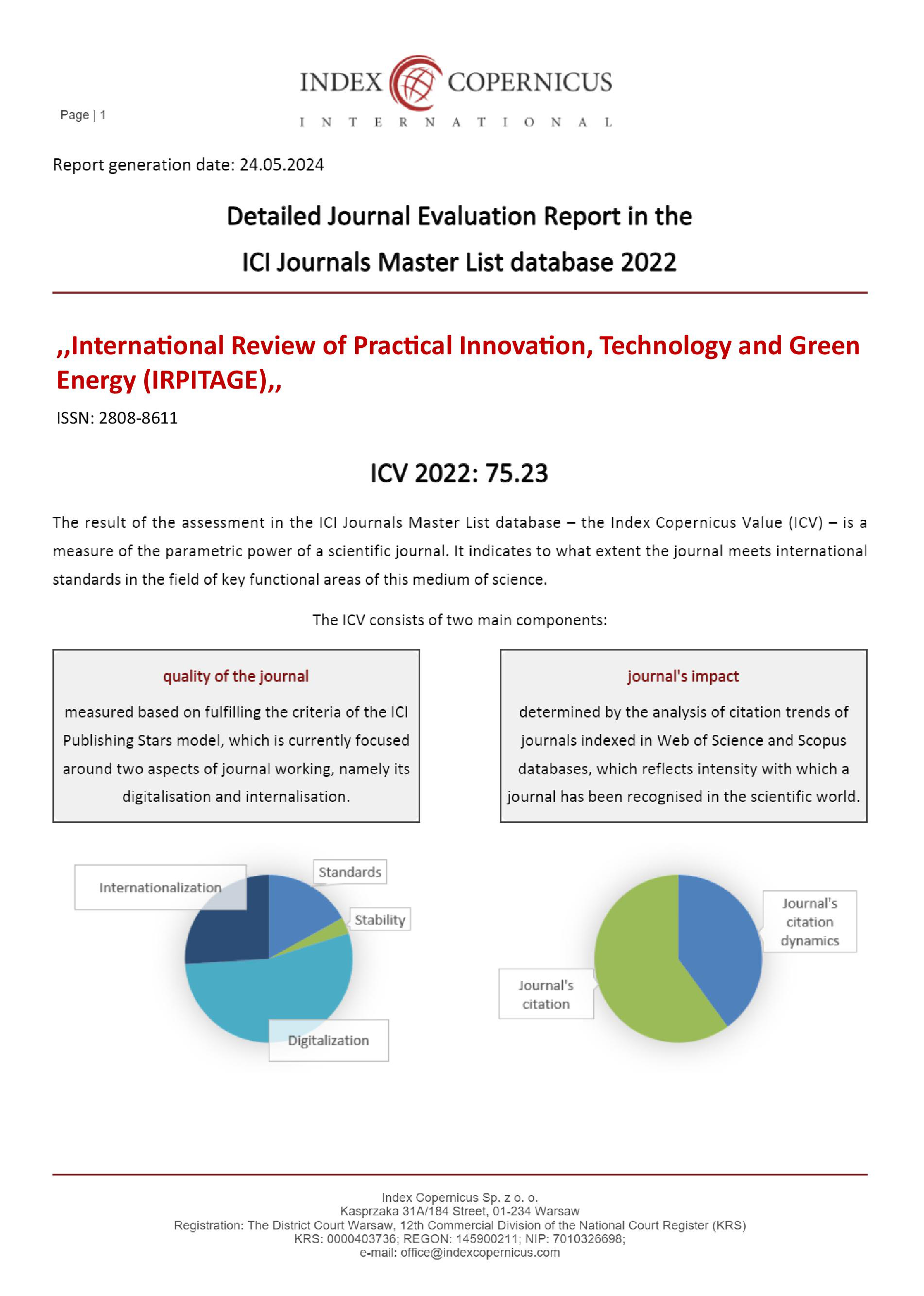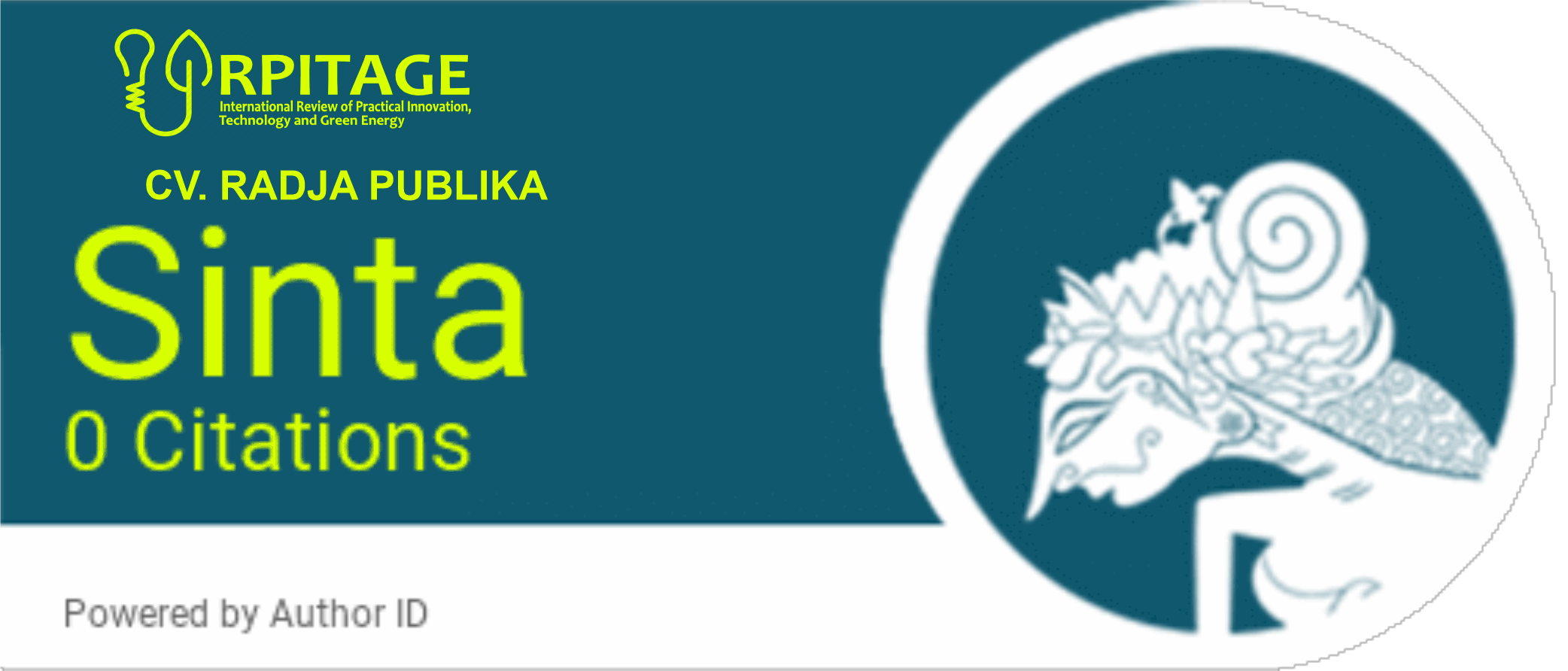
IMPLEMENTATION OF ABSORPTION WELLS IN ORGANIC WASTE PROCESSING IN KAMASAN VILLAGE, BANJARAN DISTRICT, BANDUNG REGENCY
DOI:
10.54443/irpitage.v5i1.3581Published:
2025-06-30Downloads
Abstract
Kamasan Village, Bandung Regency, was known as a flood-prone area from 2012 to 2020. Although flood mitigation efforts have successfully reduced flooding since early 2020, household waste management, particularly organic waste, remains a major challenge. This study examines the implementation of biopore infiltration wells with a diameter of 11 cm and a depth of 1 meter that utilize media from processed organic waste as a filtration layer. This system not only aims to increase the rate of water infiltration and reduce runoff but also utilizes household organic waste as an integrated solution. In addition, this study also examines the impact of infiltration well implementation on community awareness of organic waste management. Initial observations indicate that the use of organic waste media has been shown to increase soil absorption capacity without producing leachate. This model has the potential to be an effective local solution for groundwater conservation and sustainable waste management, while simultaneously increasing active community participation.
Keywords:
biopore infiltration wells organic waste processing public awareness infiltration capacityReferences
Arifin, Z., Tjahjana, DDDP, Rachmanto, RA, Suyitno, Prasetyo, SD, & Hadi, S. (2020). Application of biopore technology to increase groundwater availability and reduce organic waste in Puron Village, Sukoharjo. Jurnal Semar, 9(2), 53–63.
Aznedra, A., Putra, RE, & Desma, Y. (2018). Community empowerment through socialization of Waste Regional Regulation No. 11 of 2013 in Batu Merah Village, Batu Ampar District, Batam City. Minda Baharu, 2(2), 196–209.
Bahunta, L., & Waspodo, RS (2019). Design of rainwater infiltration wells as an effort to reduce runoff in Babakan Village, Cibinong, Bogor Regency. Journal of Civil and Environmental Engineering, 4(1), 37–48.
Hutabarat, LE, & Simanjuntak, IV (2022). Using bio-pore infiltration holes to reduce flooding in densely populated communities of Jakarta and surrounding areas. IOSR Journal of Engineering, 12(8), 1–9.
Ichsan, I., & Hulalata, ZS (2018). Analysis of the application of biopore infiltration in flood-prone areas in Telaga Biru District. Journal of Infrastructure & Science Engineering, 1(1), 33–46.
Ministry of Public Works and Public Housing. (2020). Technical Guidelines for Rainwater Infiltration Wells.
Prasetyo, A. (2022). "Effectiveness of Infiltration Wells on a Household Scale." Journal of Civil Engineering, 11(2).
Minister of Health Regulation No. 32 of 2017 concerning Water and Soil Quality.
Lestari, MI (2018). Community empowerment through organic waste management into compost by the Sarop Do Mulana Cooperative, Wek II Village, Batangtoru. At-Taghyir Journal: Journal of Islamic Propagation and Village Community Development, 1(1), 11–27.
Sari, MP, Pratiwi, DA, & Mulyati, S. (2019). Community empowerment through household organic waste management in composting. Minda Baharu, 3(2), 84–90.
Suryani, L. (2021). "Takakura Compost as a Solution for Organic Waste." Journal of Environmental Management, 5(2).
Waluyo, MR, Rahayu, F., & Mardiyah, A. (2019). Community empowerment on waste management with composting techniques and utilization of school yards for vegetable crops as a Healthy Living Community Movement. International Journal of Community Service Learning, 3(3), 122–126.
Zulaihah, L., Siregar, AH, & Marasabessy, A. (2018). Biopore-based organic waste management in Bojong Kulur Village, Gunung Putri District, Bogor Regency. Proceedings of the National Seminar on Research and Community Service, Pangkal Pinang, October 2, 2018, 256–260.
License
Copyright (c) 2025 Ridho Rinaldi, Zidan Maula Fatih, Bintang Rizqia, Dika Septiani, Radinda Putri, Ghifari Naufal, Raka

This work is licensed under a Creative Commons Attribution-ShareAlike 4.0 International License.
















